
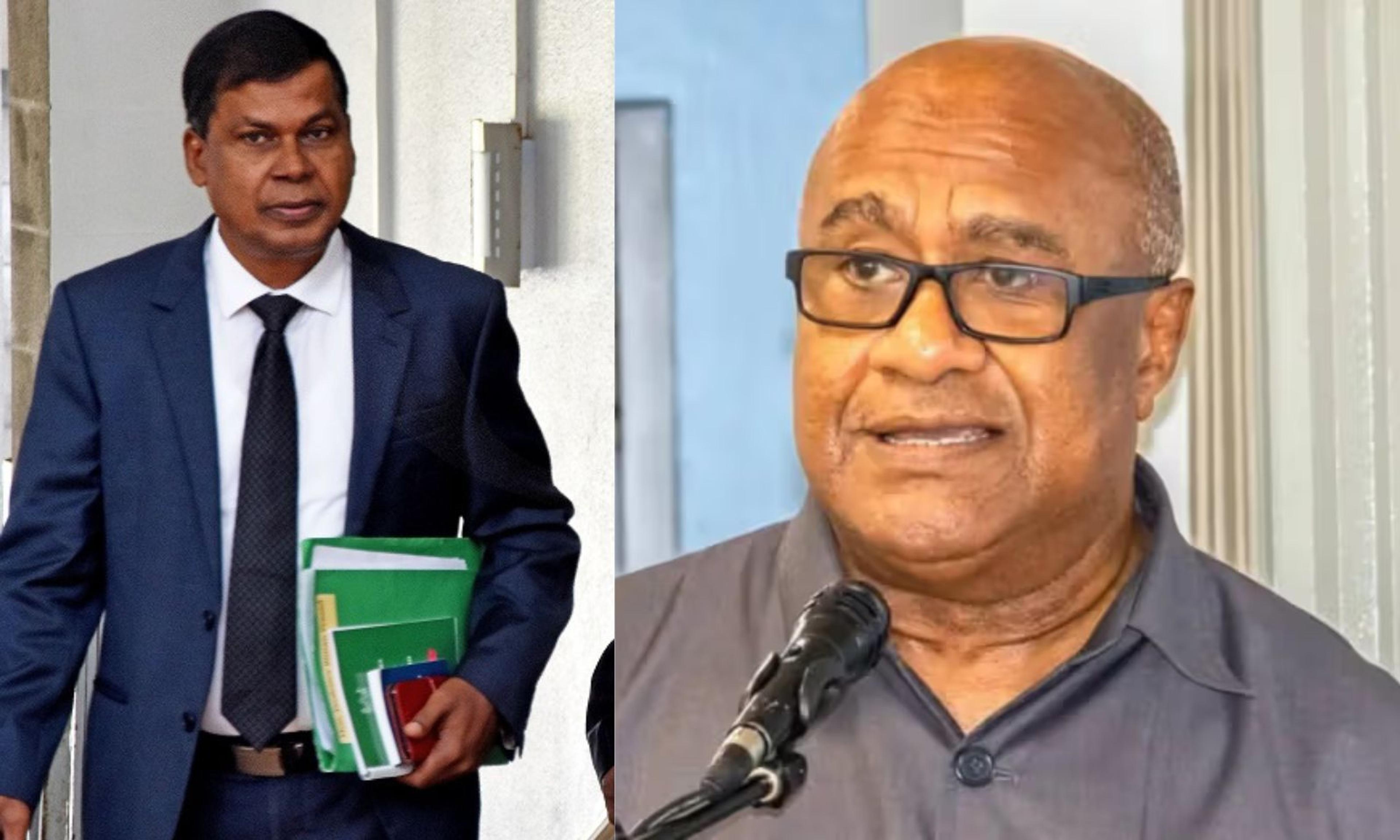
Fiji's Deputy Prime Ministers Biman Prasad, left, and Manoa Kamikamica have resigned to face FICAC charges.
Photo/The Fiji Times, file/Facebook/Manoa Kamikamica
After two deputy PMs charged, Fiji scrutinised over political motives, corruption case timing
Fiji’s anti-corruption agency is under pressure after it reversed an earlier decision not to prosecute Biman Prasad, raising fresh questions about the independence of the country’s watchdog institutions.



Pacific nations push back as organised crime targets region

From CrossFit to Commonwealth Games: Sāmoan teen rises in NZ weightlifting scene

Second by-election confirmed as Sāmoa MP quits Parliament to join ruling FAST party



Pacific nations push back as organised crime targets region

From CrossFit to Commonwealth Games: Sāmoan teen rises in NZ weightlifting scene

Second by-election confirmed as Sāmoa MP quits Parliament to join ruling FAST party
A seismic shift has struck Fiji’s political landscape this week as Deputy Prime Minister and Finance Minister, Biman Prasad, formally confirmed he has been charged by the Fiji Independent Commission Against Corruption (FICAC).
The charge, reportedly a failure to declare a company directorship, emerges against a backdrop of wider anti-corruption action that threatens to destabilise the governing coalition of Sitiveni Rabuka.
Tuesday’s announcement is significant because of the identity of the accused, Prasad, who is also the Leader of the National Federation Party (NFP), and the case was effectively closed earlier this year.
In April, FICAC declared it would not prosecute Prasad after investigating a complaint from the Ana Mataiciwa (Supervisor of Elections) alleging that between 2014 and 2023, Prasad had submitted incomplete or false declarations of income, assets and liabilities.
At that time, FICAC stated no grievances had been raised for nearly a decade, and the case was dropped.
Tuesday’s charge signals a reversal of that decision - a fresh development that calls into question the robustness, timing or motivations behind the investigation.
Legal observers suggest new evidence may have emerged, or the decision to proceed may reflect shifting political dynamics.
Under the charge reportedly filed on Tuesday, Prasad is alleged to have failed to declare a company directorship, in breach of requirements under the Political Parties (Registration, Conduct, Funding and Disclosures) Act 2013.
The exact count and details remain sealed for now, though state-broadcaster reports say the directorship relates to a hotel venture. Prasad is scheduled to appear in court on 19 November.
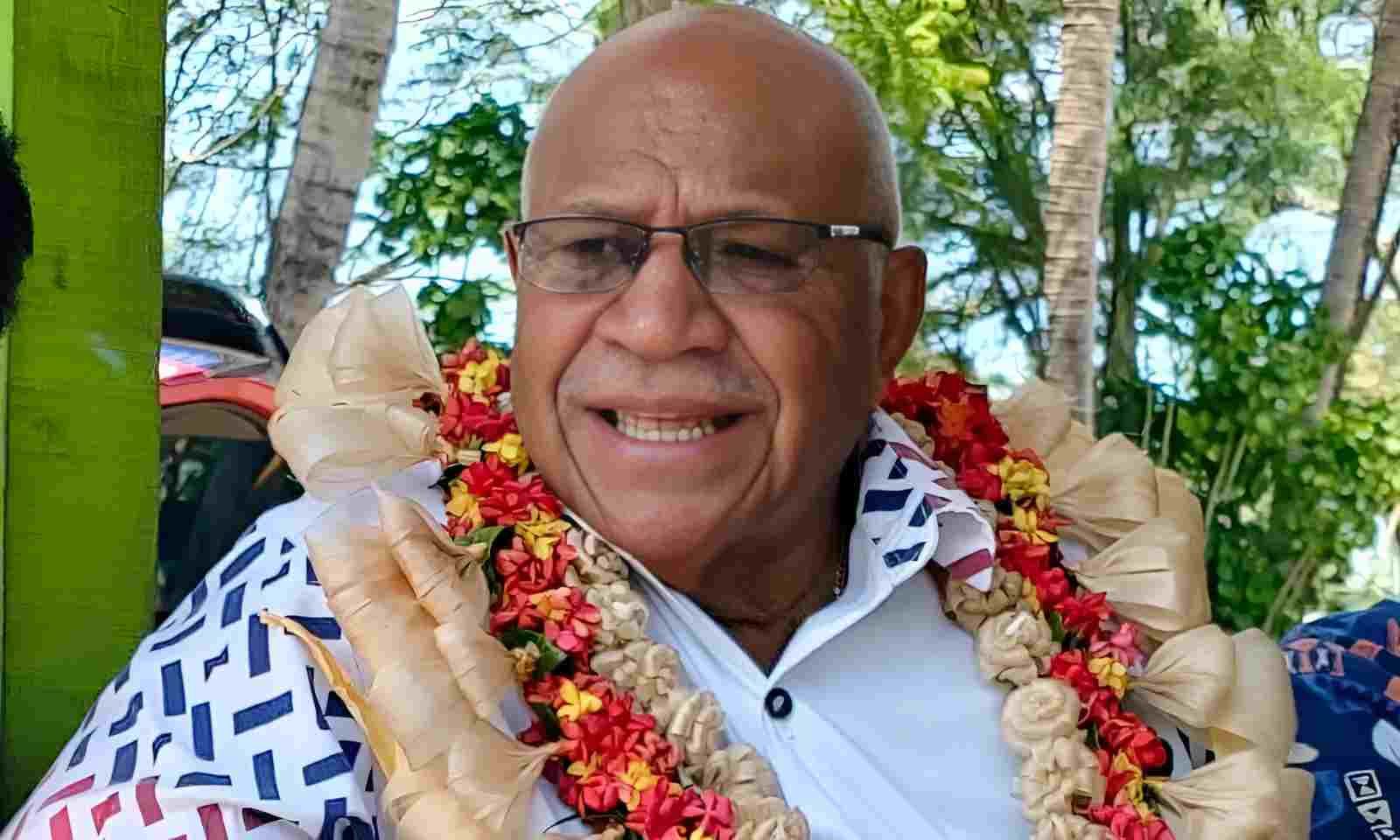
The coalition government of Sitiveni Rabuka is being hit with the resignations of both deputy prime ministers. Photo/Fiji govt
Political shockwaves for the government
The timing of the charge delivers a major blow to Rabuka’s three-party coalition government, especially given that this is the second such case involving a deputy prime minister in recent weeks.
Former Deputy Prime Minister Manoa Kamikamica was charged with perjury and providing false information to a public servant and resigned from Cabinet on 22 October.
Fijian political scientist Professor Steven Ratuva, of Canterbury University, warns: “Two deputy prime ministers under a corruption cloud in quick succession isn’t just a coincidence. It suggests structural pressures or factional warfare within the government.”
Editorial comments in the regional media described “dark political clouds forming” over Fiji, urging observers to “expect more lightning strikes” in the higher echelons of power.
Prime Minister Rabuka has issued a public acknowledgement, thanking Prasad for his service and accepting his decision to step aside from ministerial duties.
Rabuka emphasised that the government remains committed to transparency and accountability. But privately, colleagues say the coalition is under immense strain, with internal trust eroding and policy momentum at risk.
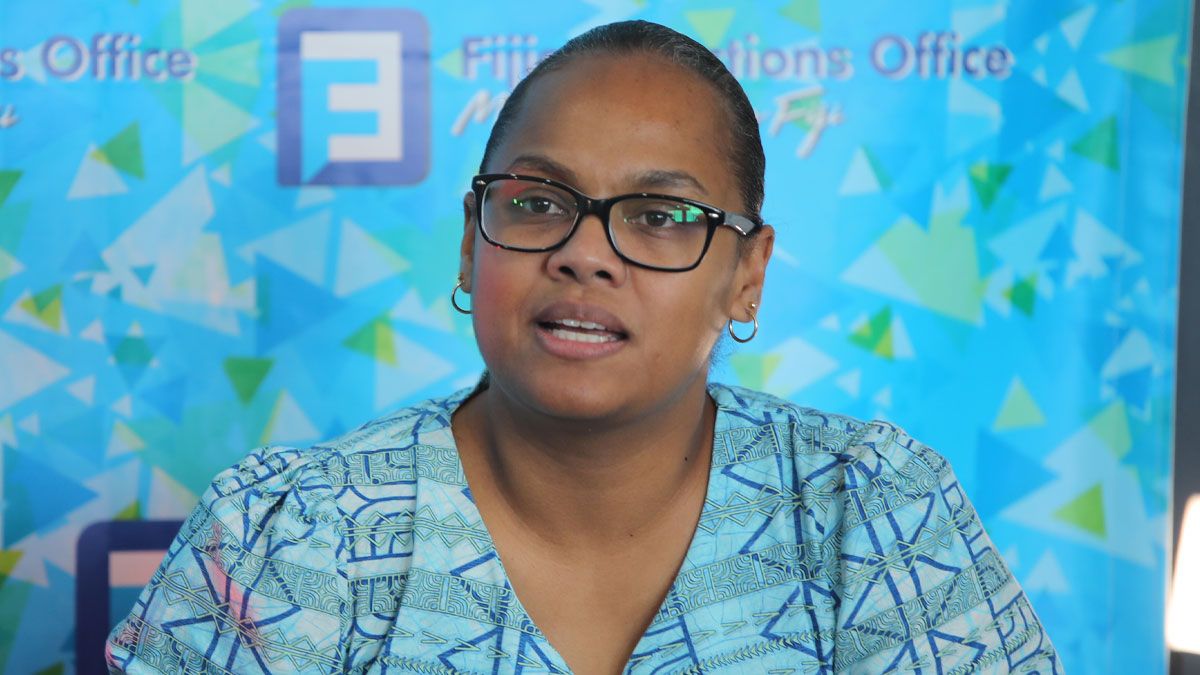
Fiji's Supervisor of Elections Ana Mataiciwa. Photo/FEO
Stakeholder reactions
Prasad, speaking to journalists outside his Suva home, insisted on his innocence: “I have always acted in good faith. I will cooperate fully with FICAC. In public service, you must accept responsibility, and this is mine.”
His party, the NFP, says the charge appears “technical” and “politically motivated”, raising serious questions about due process and consistency.
From the opposition side, the FijiFirst Party called the resignations proof that the government’s ethics pledge has collapsed. MP Inia Seruiratu says, “Fijians deserve better than being led by people entangled in ethical and legal controversies.”
Civil society groups have also weighed in. Transparency International Fiji warns that the credibility of the anti-corruption framework depends on accountability and even-handedness: “Justice must be seen to be done; selective or politically driven enforcement would be deeply damaging to Fiji’s democratic integrity.”
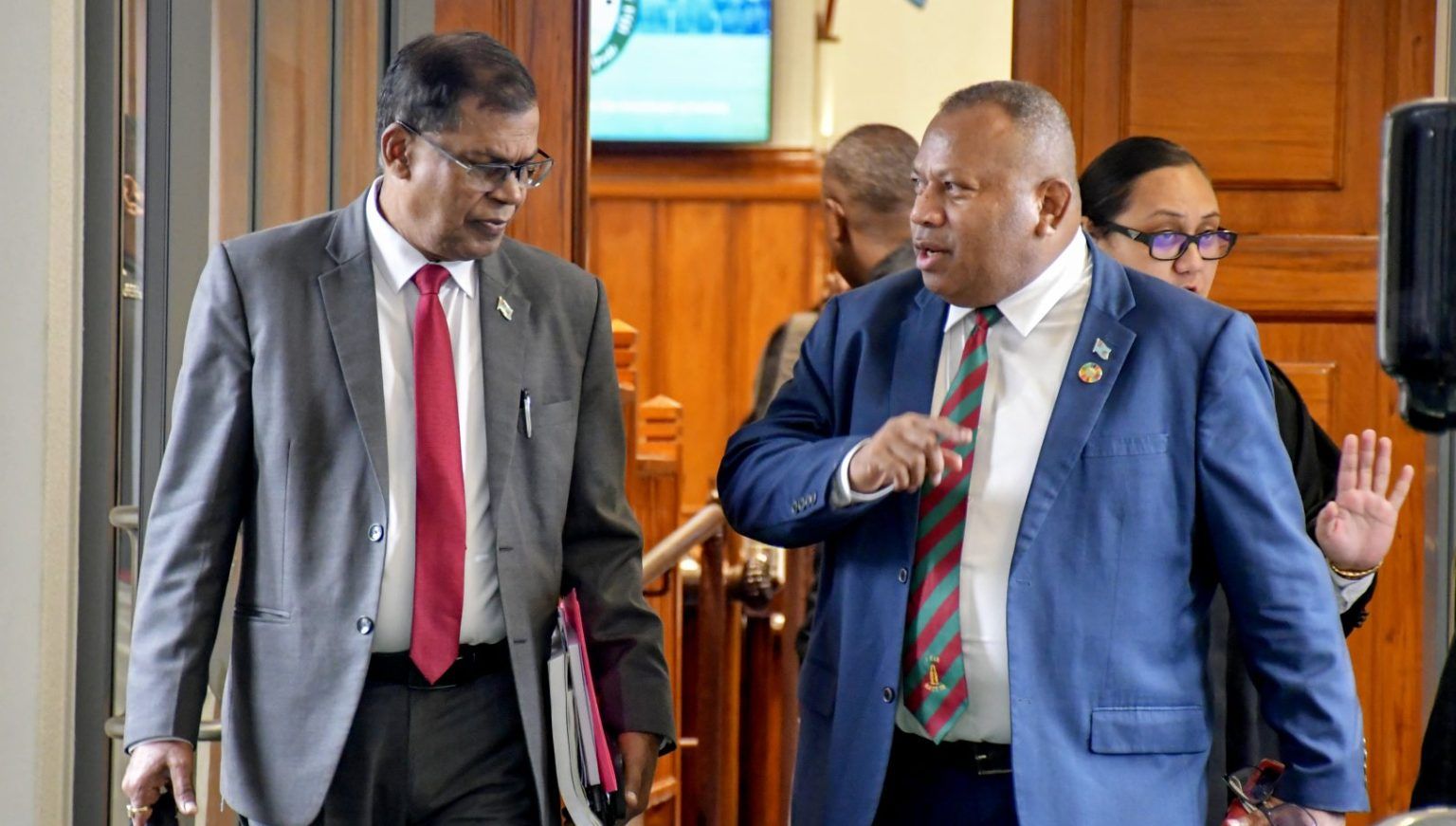
Biman Prasad, left, with Opposition Leader Inia Seruiratu following a Parliament sitting on Monday, 14 July 2025. Photo/The Fiji Times/Litia Ritova
Economic and governance repercussions
The resignation of the Finance Minister and one of the key architects of fiscal recovery comes at a particularly sensitive moment for Fiji’s economy.
The government is preparing its 2026 budget, negotiating climate-finance partnerships, and positioning itself to rebuild investor confidence.
The abrupt change raises questions about continuity and stability. Business groups have urged the coalition to “move swiftly to reassure markets”.
Analysts caution that the fallout could reduce Fiji’s attractiveness to international lenders and slow progress on reforms.
With the next general election expected in 2026, this episode already has electoral implications: if the case drags on, it may become emblematic of wider institutional weakness.
If Prasad is cleared, he could re-emerge as a symbol of resilience and reform.
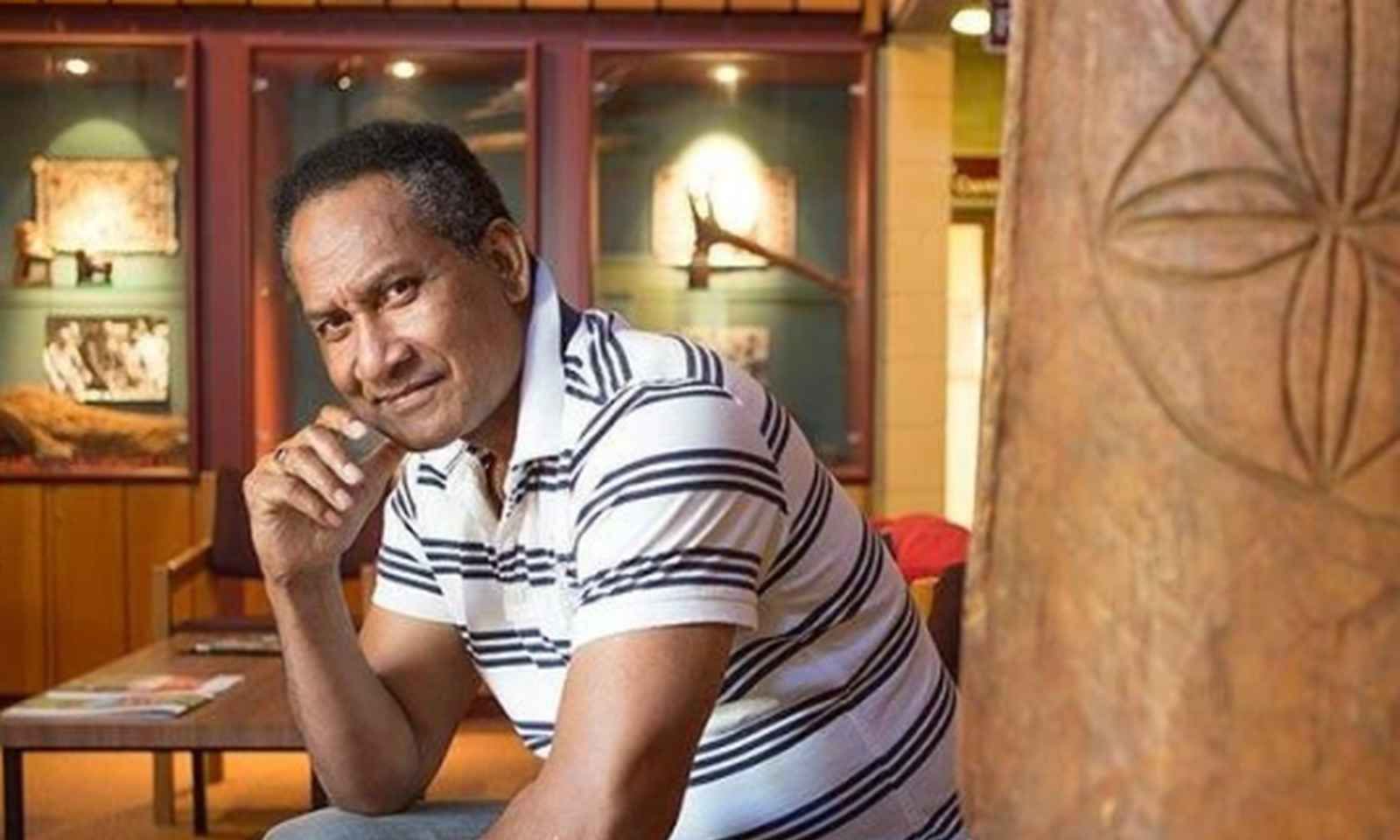
Professor Steven Ratuva warns two deputy prime ministers under a corruption cloud in quick succession isn’t just a coincidence. Photo/Supplied
What's next: key dates and watchers
Prasad’s court date on 19 November is the first moment of real consequence. Beyond that, watchers will be monitoring whether FICAC initiates further investigations or charges within the government.
Internal reshuffles are expected and Rabuka must decide whether to elevate an acting minister or restructure portfolios entirely.
Some analysts say this moment could define the Rabuka government: will it emerge with credibility strengthened, or will the coalition fracture under pressure?
Either way, Fiji’s politics are entering a new chapter - one driven not only by corruption headlines but by the question of whether governance, trust and systems of oversight will hold.
As an RNZ Pacific report states, the “second deputy prime minister has now been charged with corruption-related offences”, signalling that this is more than an isolated incident.
The wider pattern emerging this week reflects a critical juncture for Fiji’s democratic institutions.